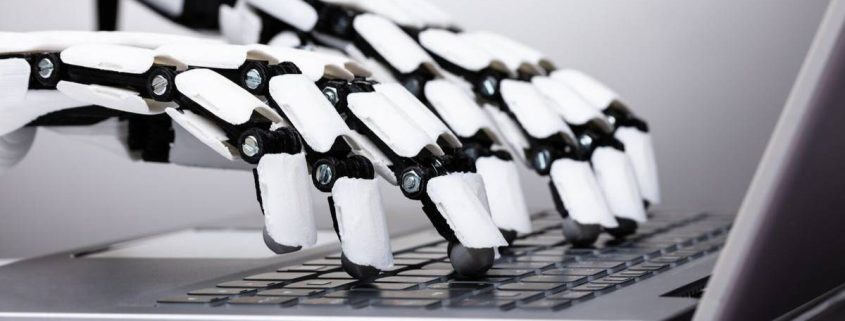How AI will change SEO
Artificial intelligence (AI) is rapidly changing the way we think about search engine optimisation (SEO). As AI technology continues to advance, it is becoming more and more important for small business owners to understand how it will impact their SEO efforts.
One of the biggest ways AI is impacting SEO is through voice search. With the rise of virtual assistants like Alexa and Google Home, more and more people are searching the web using their voices rather than typing. This means that traditional keyword optimisation tactics may not be as effective as they once were. Instead, businesses will need to focus on creating content that is optimised for natural language and conversational queries.
Another way AI is impacting SEO is through the use of machine learning algorithms. These algorithms are able to analyse vast amounts of data and make predictions about user behaviour. This means that search engines are becoming better at understanding the intent behind a user’s search query, and are able to deliver more relevant results. As a result, businesses will need to focus on creating high-quality, informative content that is tailored to the needs and interests of their target audience.
AI is also impacting SEO through the use of chatbots and virtual assistants. These tools are becoming more and more popular as a way for businesses to interact with their customers and provide support. However, they also have the potential to impact SEO by providing users with quick and easy access to the information they are looking for, without the need to visit a website. As a result, businesses will need to find ways to integrate chatbots and virtual assistants into their SEO strategy in order to stay competitive.
Finally, AI is impacting SEO through the use of automation. With the increasing availability of AI tools, it is becoming easier for businesses to automate repetitive tasks, such as keyword research and link building. This can save businesses a lot of time and resources, but it also means that they will need to find new ways to differentiate themselves and stand out in a crowded digital landscape.
Overall, AI is changing the way we think about SEO, and small business owners need to adapt to stay competitive. By focusing on natural language optimisation, machine learning, chatbots, virtual assistants and automation, businesses can stay ahead of the curve and continue to drive traffic and revenue to their websites.
Not Convinced?
How about this? The entire article above was written in about 10 seconds by OpenAI’s Chat GPT using this prompt: “Write a friendly 400 word blog post about how AI will impact SEO and what this means for small business owners”.
While it’s maybe not at the level of professional copywriting, it’s pretty impressive and is an example of the sort of automation that can make life easier for small business owners. It can take care of time consuming tasks like optimising product data for thousands of products in an e-commerce store, coming up with ideas for social media posts, even writing code for websites. And this is just the start.
What does this mean for SEO professionals like me?
The best quote I’ve read around this point is this:
“AI won’t replace us. It will replace those who don’t know how to use it”.
By staying on top of all the new developments in AI and related technologies, good SEO professionals will become more efficient and be able to add even more value to their clients, keeping them ahead of the game too.
I expect internet search to change dramatically over the next 24 months as AI-based search evolves and the factors that determine how search engines rank sites change with it. Watch this space.





